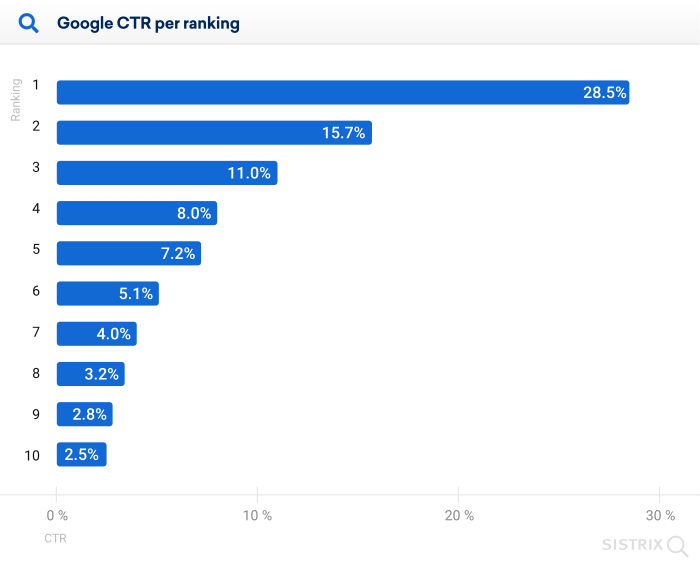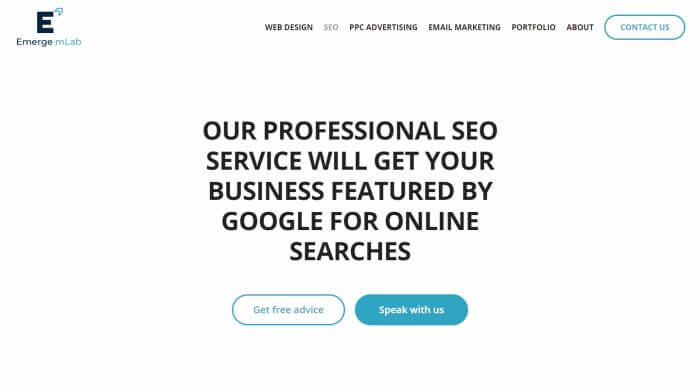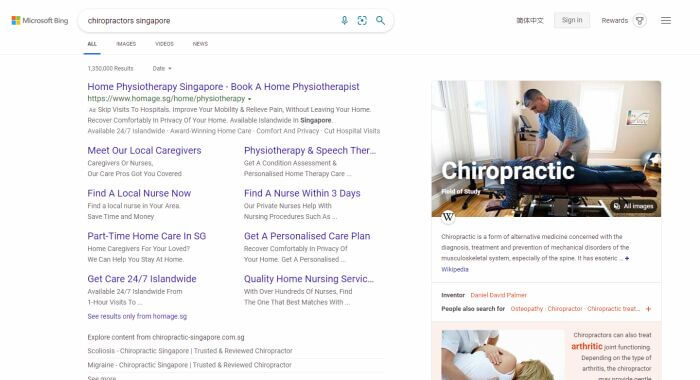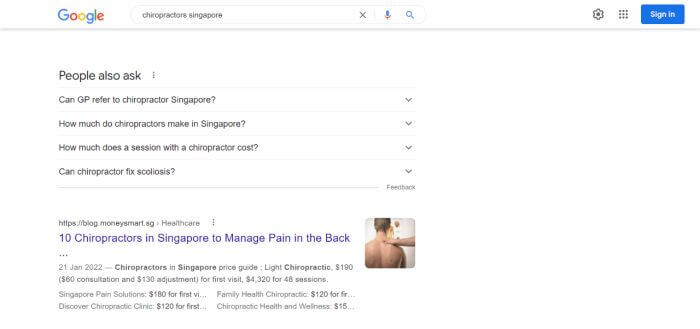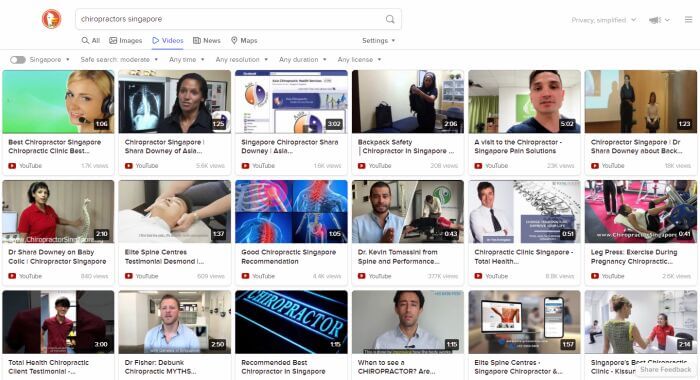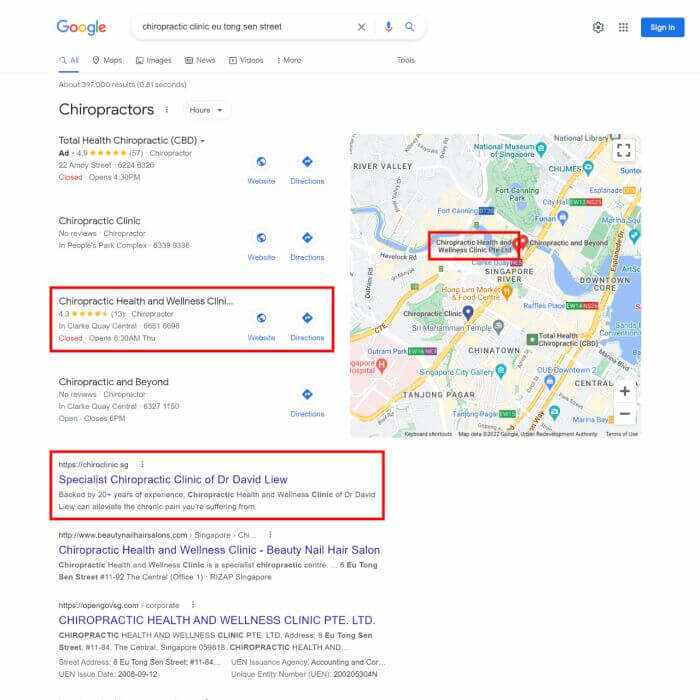A useful guide
What is website SEO? And how can small businesses in Singapore make it work?
SEO | 8 min read
Having a company website, or social media accounts, without an effective search engine optimisation (SEO) strategy resembles a car without fuel. The potential is there to stand out among Singapore companies, of course, but you’ll go faster powered by SEO efforts that make your sites more attractive to search engines.
In turn, that means searchers have a better chance to find your pages in search results and click to visit them. Because so much of web browsing begins with a search query – and the increasing use of voice to ask agents such as Siri or HeyGoogle search questions – it matters more than ever to your business to have an effective SEO plan.
So, what’s SEO? It’s the process of making enhancements to your website to improve its page ranking and domain authority so that search engines prefer your content to others that are less reliable. Responding to a question from visitors is an opportunity to add SEO-rich material. It’s one part of a process of testing, optimising, and refining your webpages and social posts, even with photos, social replies, and hashtags.
Think of SEO as a math test – not merely to get the highest score, but to consistently show improving “grades” with averages that improve over time to reinforce your success. When your pages rank highly, they are treated as “top results” by search engines, and those scores differ from Google to Bing to Avant to DuckDuckGo. Rankings also change over time.
Contents
- Why is SEO important to small businesses?
- Is your webpage content relevant to, and precisely answering, a searcher’s need and intent?
- Can you prove that your website connects to a business that is authentic and credible?
- What else improves SEO and relevance?
- Can other web content be optimised for search results?
- How do I know if an SEO strategy is working?
- Key takeaways
Why is SEO important to small businesses?
Being on the first page of results for a Google search gets more than 90% of clicks – you have to compete to reach that position. If you own a flower shop, for instance, check the search “Buy flowers” and your neighborhood to see what appears. Are your rivals on the first Google page? Then you should aim to be there also.
Effective SEO produces long-term benefits for a low initial cost: a 24/7 lead generation machine for your ideal client. A system that reaches people who are looking for you (whether they know it yet or not), SEO can boost online reputation and use reviews from customers as an excellent way to get referrals while you contact satisfied existing clients. A website that is mobile-friendly, has optimised content and excellent user experience will also help improve visitor traffic.
Specialised SEO services can make your website – and quite possibly your business – stronger and more focused by making sure content creation and structural changes are consistent with search engine guidelines. By doing so, the site, deemed trusted, has greater potential to be “popular” or ranked highly as a search result.
Is your webpage content relevant to, and precisely answering, a searcher’s need and intent?
This important question is a starting point for being featured by search engines. Experts say as many as 200 different ranking factors may be considered for evaluating websites as search engine companies scan pages for coding, links, content, images, and other elements. They’re ranked, compared with history and other inputs.
Search engines crawl across the web collecting and indexing specific page URLs. They analyse words, images, and documents on each page to give it a score – similar, in some ways, to a credit score. Each score is different and changes with time and situation. Whatever your SEO score, the search engine ranks the site’s contents and “decides” whether your pages are valuable or not worthy of high ranking.
Google, for example, also ranks pages by popularity, meaning that a higher score is obtained as more people click on a specific search result or talk about the brand in the virtual space. Other search engines have their own systems for balancing website popularity and quality, timely updates, and keywords when someone types in a request.
Those links, or URLs, are what you see as clickable results. Small businesses need online presence to be found by searchers and considered credible. Online reputation raises awareness of the company and its products and services and image of its brands. Competition for top ranking means coping with changing technologies and algorithm math to keep pace.
These are just some of the reasons why SEO strategies and services need to keep pace with your industry. Things change, technology habits evolve and your business will mature. Perhaps all those details affect what, when, and how online searches are being made by possible customers.
Can you prove that your website connects to a business that is authentic and credible?
Public data about a company, employee postings, and customer reviews are ways that search engines connect the details of your website with information about that listing and relevant data – business address, phone number, and main contact email address – to quickly evaluate the validity and reliability of search results.
Each webpage, and updates over time, is distinctive. Not all pages get seen and indexed equally for various reasons. Among the multiple factors that search engines consider in rankings: Has it been revised recently with new data or keywords? Is the new information accurate and does it match other relevant pages?
Your content needs to answer questions from people doing searches, not just satisfy search engine companies. When searchers click and stay on your page, it tells the search engine that a successful match was made between enquiry and the site that was clicked. It also signals to the search engine that content is relevant to similar queries and should be given prominence.
As always, there’s more to it.
Your business should identify a timetable and budget to regularly evaluate marketing, SEO strategies, and online business activity. Did you obtain the expected results? Were there surprises? Are your definitions of success consistent throughout the organisation with leads, clicks, enquiries, or orders?
What is your website visitor coming to do?
By putting yourself in the role of a web searcher and potential customer, start with their needs first for your website. Are visitors coming to get product or service details? Is there a common question that begins most of your sales or enquiry calls? If so, perhaps those basics can become self-service via the website – such as open hours for a store or office.
Is a visitor comparing your business to others before making a purchase decision? Some companies use their website to show their expertise by offering solutions to common problems or advice for visitors when making a comparison between providers.
For a local business, such as Singapore chiropractor Chiropractic Health and Wellness Clinic identifies painful back, neck, or muscle conditions that can be resolved with chiropractic. Dr David Liew explains the differences between chronic and acute pain, for one example. His website qualifies interested visitors and positions him as a knowledgeable resource who has been in practice since 1998. It also shows the available times for a consultation.
What else improves SEO and relevance?
When another website links to pages on your site, it creates a “backlink” and they indicate to search engines a certain standing or rating. If valuable information is contained, that link might be a vital resource and improve your site’s rankings. They also improve traffic in visitors to your sites along with links out from your sites to trusted, valuable material on other sites.
Creating content that others want to link will take different forms, depending on your industry and resources.
- Blog post – also consider getting a news portal to cover your company’s special event and link the article back to your site.
- Surveys and polls – asking a question about your industry, local area, or topic relevant to your customers can be effective in engaging visitors.
- Infographics – easy to understand charts or graphs with survey results or industry trends help visitors who are researching products or services.
- Videos – people enjoy watching videos to learn quickly and gain useful information, so those resources attract links (especially when there is no “hard sell” promotion in the material).
Can other web content be optimised for search results?
At different times – and different ways via tablet, phone, or computer – people consume or prefer different kinds of search results. Displaying more types of content in text, video, photo, or illustrations plays a role in helping your site visitors to do comparison shopping, answer common questions for use or repair of your products, and explain the services your business offers.
- Ebooks and documents, even PDFs if they are made searchable.
- Podcasts
- Photos, illustrations, infographics
- Videos, webinars, demonstration or offsite postings on YouTube, Dailymotion, and Vimeo.
How do I know if an SEO strategy is working?
These are the main indicators that show whether SEO is working:
- Indexed webpages on your site
- Number of queries made
- Number of impressions
- Number of clicks and click-through rate (CTR)
- Number of backlinks
- Volume of traffic from organic searches
- Average time spent on page
- Target keywords ranking
Some notes of caution are important, however. Good showing for one index may mean that numbers decline in another area. “Click-through Rates” or “Time on Page” are averages collected by search engines, so adding new pages (a good thing because searches value new content) may cut into the average (not a bad result, but perhaps a lower number gets more attention).
Be aware of the multiple ways that data, trends, and success all have different impacts. Measurements become more nuanced and complex as your web strategies expand.
Of course, for profit-driven businesses, it all boils down to: “Is SEO making us more money?”
Key takeaways
- Start your SEO journey by researching and gathering keywords or search terms that are most relevant to your company and ensure the contents on your website address relevant search queries.
- Explore what kinds of content might be useful for your partners and other websites, such as sources of referrals. Could material on other websites you know and trust link back to your pages and enhance your page? Over time, what long-term links could establish foundation ties to your business – such as a neighborhood guide, business association, or nearby company. These links build authority and relevance.
- Regularly review website and search metrics to be sure they are still delivering the results you’re seeking. Changes to keyword relevance, search engine algorithms, and competitor strategies may require an adjustment of your tactics.
Contents
- Why is SEO important to small businesses?
- Is your webpage content relevant to, and precisely answering, a searcher’s need and intent?
- Can you prove that your website connects to a business that is authentic and credible?
- What else improves SEO and relevance?
- Can other web content be optimised for search results?
- How do I know if an SEO strategy is working?
- Key takeaways

Kirby Poh
Search marketing & web design
Spent years marketing and selling to SME customers in Southeast Asia - he knows B2B marketing. Gets a kick out of using his SEO and PPC ad abilities to make money for Emerge mLab’s clients.
Worth $675, yours for free
Get your free business SEO consultation
Hurry! We can only take 5 free requests a month.
Our SEO strategist will audit your website and draw up a to-do list to strengthen its fundamental on-page SEO elements – absolutely free.
You can give this list to your regular web developer to implement the changes. If you don’t have one, our team of SEO experts can do it for you.
Your website can move 20-50 spots up Google SERP 6-12 months after the changes are made, giving you a huge advantage over competitors who fail to implement advanced SEO strategies and techniques.
To begin, complete the form below. It could be the smartest decision you've ever made towards optimising your online presence and image branding to maximise revenue.
Hi, I’m Annie!
If you wish to speak with a person at Emerge mLab, just tap the call or WhatsApp button – I’d likely be the one picking up your call.
Otherwise, go to our “Contact Us” page to reach us in other ways.
Monday-Friday: 9 a.m.-6 p.m.
Emerge mLab
Equips businesses with powerful online lead generation capabilities
SEO guides
What is website SEO? And how can small businesses make it work?
Want to succeed in SEO? First, learn how search engines work
An SME guide to understanding Google Search algorithms (and ways to improve rankings)
33 winning “White Hat” SEO tips that boost SME websites
10 ranking factors Singapore companies must know to top search results

